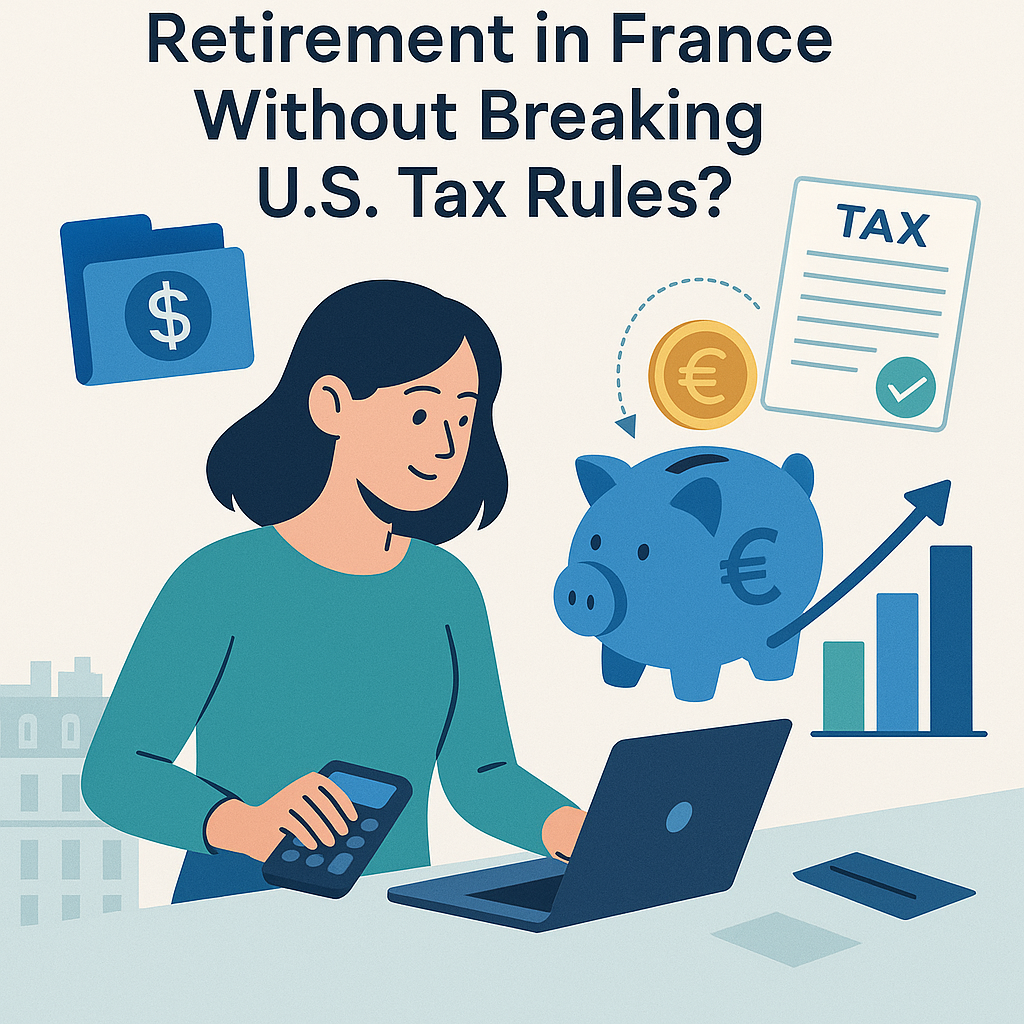Can I Still Save for Retirement in France Without Breaking U.S. Tax Rules?

The problem is U.S. expats are unsure how to keep saving for retirement while living in France, which causes confusion and fear of doing something wrong with the IRS.
They want to grow their money long-term while staying compliant,
so they can retire comfortably — in France, the U.S., or anywhere.
✅ Yes, You Can Keep Saving — But There Are Rules
Moving to France doesn’t stop you from saving for retirement. But the tools and rules are different, and not everything that works in France works with U.S. tax law.
Here’s what you need to know:
1. You Keep Your U.S. Accounts
- You can keep your 401(k), IRA, Roth IRA — even after moving abroad.
- You usually can’t contribute to IRAs unless you still have U.S.-earned income.
- Your investments inside U.S. accounts keep growing tax-deferred.
💡 Pro Tip: Use a U.S.-based brokerage that allows expat clients (some do, some don’t).
2. France Has Its Own Pension System
If you work in France, you’ll automatically pay into the French public pension system. You don’t have a choice — it comes out of your paycheck.
- Contributions also give you access to healthcare and unemployment benefits.
- You earn credits toward a future French pension.
👍 The U.S.–France Totalization Agreement makes sure you’re not double-charged and that your time in France counts toward Social Security eligibility.
3. You Can Use French Retirement Plans — Cautiously
👉 What can work:
- PER (Plan d’Épargne Retraite) — lets you save extra for retirement and lower your French taxes.
But:
- The IRS does not treat these accounts as tax-deferred.
- Many include foreign mutual funds, which the IRS considers PFICs — complex to report and often taxed at high rates.
⚠️ To stay safe, work with a cross-border financial advisor and only use funds listed on U.S. stock exchanges inside any French account.
❌ What not to do:
- Don’t use French robo-advisors or bank portfolios without asking about U.S. tax compatibility.
- Avoid Assurance Vie unless you fully understand the U.S. tax consequences — it’s popular in France but can be a tax trap for Americans.
Summary:
Yes, you can still save — but avoid French products that trigger IRS problems.
Your Best Moves:
- Keep growing your U.S. retirement accounts.
- Use the French public system if employed — you’re covered by treaty.
- Add private savings with caution (and advice).
📩 Questions about how to do it safely?
Contact: franceexpatservices@gmail.com




